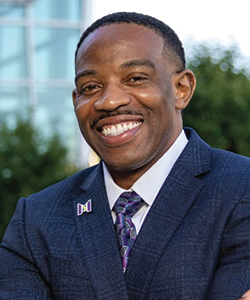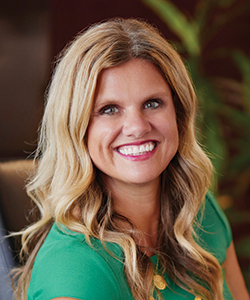On Leadership: How to lead effectively during the holiday season

I once had a job where our entire company and spouses were expected to attend a lavish holiday party at the boss’s house. Our leadership team dreaded this particular event as it was on a Thursday night and required a long drive for most people. With a brutal year-end workload and staffing shortages, the party was seen as just another obligation that created stress. Despite best intentions, our boss was not in tune with what we really needed as the holidays approached: time and support.
For many people, the upcoming holiday season is a time for celebration, joy and cheer. But for leaders, human resources professionals and team leaders, November and December can also present unique challenges: Year-end deadlines loom at the same time that many team members are taking time off, focusing on social activities or experiencing personal holiday-related stress that can reduce engagement and productivity.
During this time of year, it can be hard for leaders to manage effectively without coming across as total humbugs or crumbling under the pressure themselves. How can you get the work done, support your team — and still have time to enjoy the season?
First, it’s critical to acknowledge that year-end pressure and stress is real. Research by the American Psychological Association showed that almost half of U.S. adults (49%) experience moderate stress during this period, with 41% reporting an increase in stress compared to other times of the year. While many respondents reported feeling happy about the holidays, 63% also associated them with negative feelings of stress, overwhelm or exhaustion. A Harvard Medical School article notes that during this intense period of holiday stress, the brain’s prefrontal cortex goes into overdrive.
To cope with the stress, some people turn to unhealthy behaviors. APA’s 2023 holiday stress survey found that approximately 38% of adults who experience stress during the holiday season reported using negative coping mechanisms such as isolating themselves, overeating or restricting diets, or abusing alcohol, drugs or nicotine. So, not only are leaders dealing with team members who are stressed, we are also often managing people who are further sabotaging their health.
To prepare ourselves to lead, the Harvard Medical School article authors suggest that leaders require “shifting set,” which means updating or shifting cognitive strategies to respond to the changes in our environment.” To be successful, one must have the cognitive flexibility to shift attention between one task and another to adapt rapidly. “These skills include managing time, being attentive, switching focus, planning and organizing, and remembering details,” says the article. In other words, being proactive, aware and vigilant.
As a leader, this is no time for winging it — you must be intentional. It’s crucial for leaders to adopt strategies that help mitigate stress and maintain productivity for our teams and ourselves during the holiday season. In addition to managing our own cognitive and physical behaviors, consider what specific actions you can take to manage processes in the workplace. A People Matters Global article suggests some practical approaches, including setting clear and fair holiday leave, openly addressing the year-end workload, avoiding overloading employees with holiday obligations, being flexible with schedules, proactively managing time off or staffing shortages and prioritizing employee well-being.
Keep in mind that holiday leadership strategies are not one-size-fits-all; what works for one company may not necessarily work for another. Some companies may decide to give team members more space and others may lean full-on into the festivities as a way to build culture or thank the team and clients. While the big holiday party at my old company wasn’t a hit due to the year-end crunch in that industry, those types of events can be perfect for other organizations. (and I have enjoyed many holiday parties since that time.)
As you head into the holidays, knowing what works for you as a leader, for your team as a whole and for individual team members is important. The most important factor is to know and craft a proactive and intentional plan for the year-end season: Remember to shift your mindset, be as healthy as possible, adopt clear strategies to manage your team’s workload and well-being — and most of all, be of good cheer.
I asked local leaders to share some best practices for leading effectively during the holiday season and busy end-of-year time.

Greg Edwards, president and CEO, Catch Des Moines
’Tis the season to be jolly! The main objectives of our business model are to increase visitors and increase economic impact, so we remain jolly every day (unless of course we don’t win).
Many businesses are finishing their year, but we are on a fiscal year closing in June. We don’t fret over facing “year-end;” we are focused on exceeding our goals every day of the year. Leading effectively during the holidays (and every day) are reflected in our core values:
- We welcome.
- We make an impact.
- We win as a team.
- We sell fun.
- We connect.
- We serve.
We celebrate the holiday season with our Thanksgiving potluck, Secret Santa week, special customer appreciation events, and our annual Holiday Party (hosted by Joni and me at our home). Leading effectively during the holiday season is stated in our “We sell fun” value: Selling fun every day means we come to work with a smile. Our enthusiasm for the region is authentic and we love to play host.

Susan Hatten, chief marketing officer/shareholder, Holmes Murphy; chief operating officer, BrokerTech Ventures
It’s no surprise that year-end activities and holiday season festivities bring about much angst and anxiety among many of us. This question brought me back to reflect upon my quote for the year — “Finding joy in the journey.” That may seem cliché, yet I try to live the season with an air of gratitude rather than stress. From a practical standpoint, I also try to step back in late summer/early fall, to anticipate any planning, organizing or scheduling that I can control to help manage the bustling weeks leading into the new year. It’s taken me many years to embrace this, but it’s OK to say “no” to seasonal events that don’t fill you up. While the season may not feel like a Hallmark movie, I believe the more you slow down, reflect, and plan ahead, the greater joy you will find in the season.

Dr. Adreain Henry, president, Mercy College of Health Sciences
The holiday season and year-end can bring a unique set of challenges, both for leaders and their teams. As responsibilities pile up — from year-end deadlines and to-do lists to family gatherings, gift exchanges, and holiday events — stress can easily follow. On top of this, leaders may face staffing gaps due to well-deserved time off, all while balancing their own family obligations. When leaders lead with compassion, they help build an environment of trust and respect, inspiring a more motivated and cohesive workplace. At Mercy College, we see compassion as a core value — a way to “feel with” others, sharing in both their joys and challenges as part of a connected human community. During the holiday season, leading with compassion means recognizing and supporting your team’s needs. This might include being flexible, encouraging self-care, and prioritizing meaningful check-ins. By extending compassion, leaders help reduce stress and prevent burnout, making the holidays more fulfilling for everyone.

Amanda Young, EVP, chief human resources officer, Bankers Trust
Take care of yourself and put your oxygen mask on first. Your ability to help others as a leader through busy, changing and sometimes emotional times at home or work is only possible when you are mentally and physically healthy. It’s also a good time of year to give others grace; you never know the metaphorical rock on someone else’s back. This time of year tends to bring on a lot of reflection from goals achieved or not achieved, missing loved ones, and really no slowing down to give space for these feelings. It can also be an extremely exciting time as we close out one year and plan for the next. Just like any opportunity that comes with change, there is always a chance to begin again, learn from the last transition and set our sights high.

Suzanna de Baca
Suzanna de Baca is a columnist for Business Record, CEO of Story Board Advisors and former CEO of BPC. Story Board Advisors provides strategic guidance and coaching for CEOs, boards of directors and family businesses. You can reach Suzanna at sdebaca@storyboardadvisors.com and follow her writing on leadership at: https://suzannadebacacoach.substack.com.






